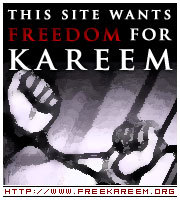Some Habits Die Hard
For the United States hobnobbing with Islamist terrorists is one of them.
It seems the adage once bitten twice shy just doesn’t apply to the United States of America. Within three years of the US being the victim of the most spectacular terrorist attacks ever - inflicted upon it by none other than its former protégé Osama bin Laden - USA is back hobnobbing with Islamist terrorists.
This time the US is using a Pakistani tribal militant group called Jundullah to undermine Iran’s sovereignty. Stratfor notes that these ‘activities’ serve as a poking device for the United States to use against Iran in the diplomatic tango over Iraq.
The group's origins are murky, but it appears to have surfaced in 2003 under the leadership of a 23-year-old Sunni ethnic Balochi who goes by the name Abdolmalek Righi. Jundallah, or "Soldiers of God," is not to be confused with the more jihadist-oriented Pakistani group by the same name that was responsible for the 2004 attack against Gen. Ahsan Saleem Hayat, Pakistani President Gen. Pervez Musharraf's deputy. The Jundallah that is active in Iran is an ethno-nationalist insurgent group with an Islamist bent. Its campaign is directed against the Iranian clerical regime for suppressing Iran's impoverished Balochi minority, who are concentrated in the lawless Sistan-Balochistan province in southeastern Iran, where the Afghan, Pakistani and Iranian borders meet. Jundallah's activities have picked up during the past two years. The group has claimed responsibility for a number of killings and kidnappings of Iranian security forces and officials, the most recent and prominent attack being a Feb. 14 bus bombing that killed 11 members of the elite Islamic Revolutionary Guard Corps (IRGC). The group's young leader has mounted a strong media campaign, in which he regularly condemns the Iranian regime and claims responsibility for attacks via Internet statements. In fact, Voice of America (VOA), a U.S. government agency, aired a live phone interview with Righi on its Persian-language service April 1, introducing him as the "leader of the Iranian people's resistance movement." VOA's decision to provide Righi a platform to air Balochi grievances has raised further suspicions about U.S. involvement with the group. The United States has a variety of minority groups to rely on to stir up trouble in the Islamic republic, including the exiled Mujahideen e-Khalq (which largely came under U.S. control at the beginning of the 2003 Iraq war), Ahvazi Arabs in Iran's southwest and Kurds in its northwest. Jundallah's campaign in Sistan-Balochistan falls in line with U.S. efforts to ramp up support for oppressed Iranian minority groups in an attempt to push the Iranian regime toward a negotiated settlement over Iraq. The Pakistani connection, however, is more elusive. Pakistan has its own raging Balochi insurgency to deal with, and is not interested in supporting a Balochi insurgent group across the border with the capability to kidnap and kill members of the IRGC. Moreover, the Pakistanis know they must tread carefully in their dealings with Tehran, particularly as Iran is already wary of repercussions of Washington's close relationship with Islamabad. That said, Pakistan could have worked out an arrangement with the United States to turn a blind eye to covert U.S. forces in Pakistan working with Jundallah. The Pakistani sources cited in the ABC report also said Righi formerly worked for the Taliban, though both Pakistani and Iranian officials are prone to classify the Balochi groups as al Qaeda-linked terror organizations for their respective political purposes. The porous borders in the region are highly conducive to drug smuggling, however, so Righi's group likely has contacts with a variety of militants through these operations. U.S. support for Jundallah fits into the larger picture of U.S.-Iranian negotiations over Iraq. Iran has made painfully clear that it has -- and can use -- a variety of militant assets throughout the region to pressure Washington to meets its demands in Iraq. At the same time, the United States has an interest in demonstrating that it has friends among Iran's minority groups to gather intelligence, stir up public unrest and distract the clerical regime from its Iraqi agenda. This type of covert activity fits into a complex blend of negotiating tactics, including military posturing, risky maneuvers and occasional conciliatory gestures designed to get the other side to bend. For the United States to run a more effective, coordinated campaign inside Iran, however, it will need to demonstrate it can alternate action among the Iranian mix of minority groups. Only then can Washington unnerve the Iranians enough to cause serious worries about potential leaks in their system, and thus enhance the U.S. bargaining position.[Stratfor] |






No comments:
Post a Comment